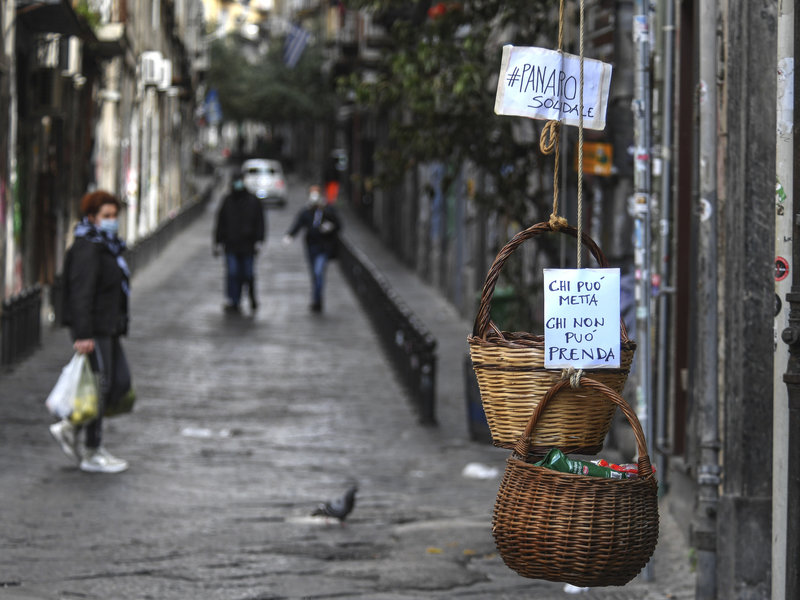In Naples, Pandemic ‘Solidarity Baskets’ Help Feed The Homeless

Italy has been hard-hit by the coronavirus epidemic, with a death toll of more than 16,000. Its economy is in near-shutdown.
Although Italy’s south has seen fewer deaths from COVID-19 infection than the north, its poverty and jobless rates are high. In lockdown since March 10, Naples, a normally bustling city of more than 2 million, is now a ghost town. Acts of charity, long a hallmark of this city, have become more important than ever as a means of sustenance.
Pina Andelora and her partner Angelo Picone are street musicians who often perform traditional Neapolitan songs in Spaccanapoli, the heart of Naples. Along with other residents, they’re staying at home. But the two performers — who are also community activists — realized that with their city’s soup kitchens closed, they could still be useful. They would prepare meals for the homeless.
“We realized there’s the issue of safety and social distance,” Picone says. “So we relied on an old Neapolitan custom — lowering food baskets from our balcony.”
It has been done for centuries. From their windows, housewives — busy looking after children — have lowered ropes attached to baskets with money inside. On the street, in exchange, the baker, fishmonger or butcher places wares in the basket. Then it’s hoisted back up.
